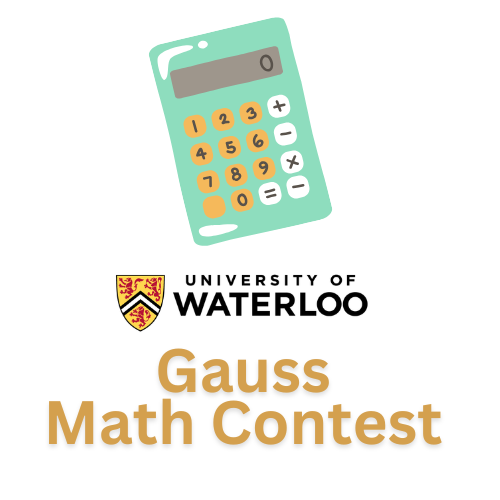
Gauss Contest (Grade 7–8)
The contest, organized by the Centre for Education in Mathematics and Computing (CEMC) at the University of Waterloo, attracted 76,524 participants worldwide in 2025. It introduces students to creative problem-solving in math. It is designed to foster curiosity, logical thinking, and interest in mathematics in a fun, accessible format.
Recognition: High performers earn certificates—25% receive a Certificate of Distinction; a perfect score of 150/150 is rare.
Read More about the Gauss Contest →